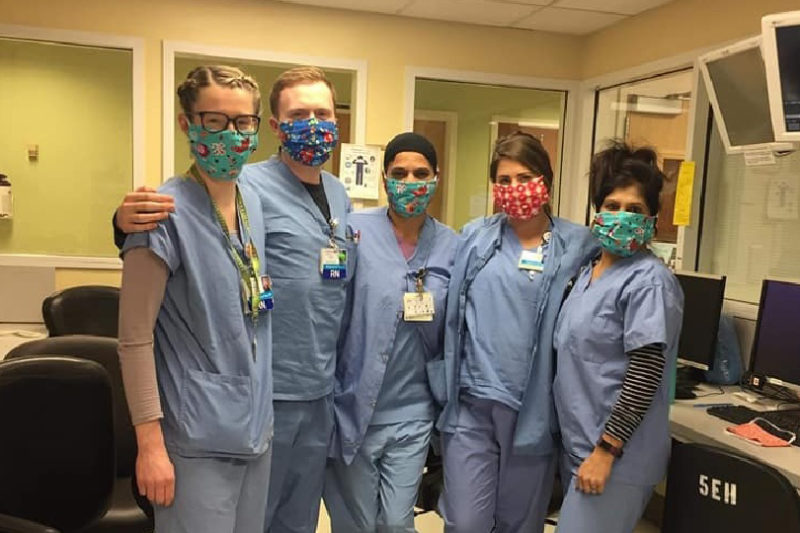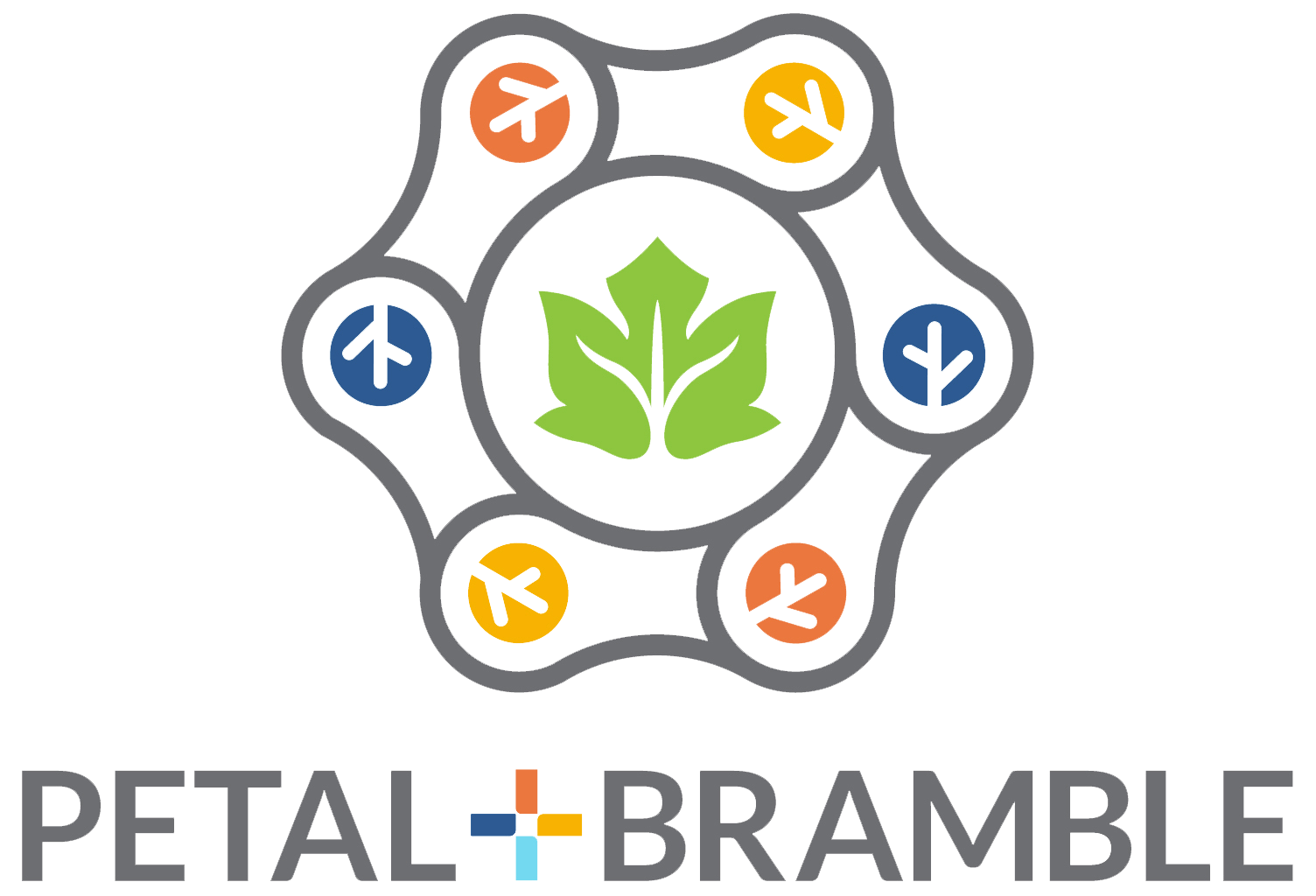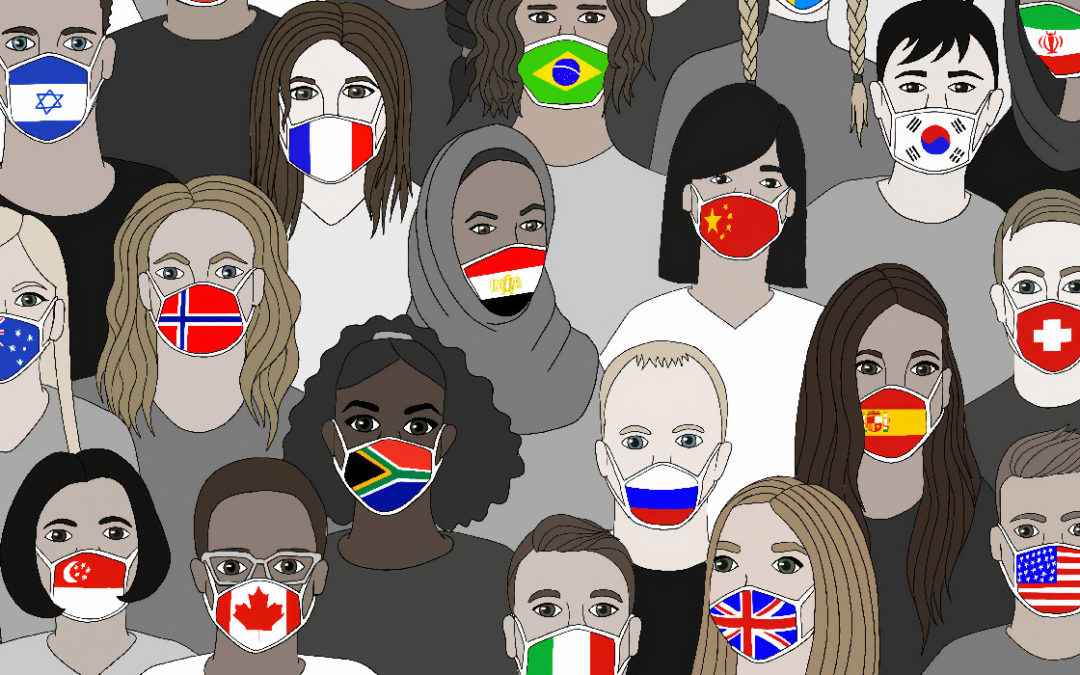It is an understatement to say that COVID-19 has changed our lives. It has changed the way we work, procure goods and services, and interact with colleagues, family, and friends. The global pandemic has created a flood of suffering, economic hardship, death, and uncertainty. I am acutely aware of how much we have lost this year. However, with these trials has also come an opportunity: the chance to focus, reset, and gain perspective. It turns out I needed that.
When I was young, one of my favorite experiences was being “bored.” It typically happened during the summer, when school was out and time stretched on forever. Then, too, I had the opportunity to stop, rest, and investigate the world around me. Being a maker and explorer at heart, I was able to create new things and read about places I’d like to visit someday. I also remember destroying my new school shoes by climbing in and out of a ravine with a group of neighbor kids. I experienced more than a few of these moments during 2020. While I have been sheltering in place, I have consumed less, created more, and found ways to use what we have on hand. I have also been given a valuable opportunity to reevaluate how I spend my most precious gift, my time.
As I write this in January 2021, the first COVID-19 vaccines have been released to the public and more are on the way. I am grateful for modern medicine and technology. I am grateful for our scientists, the men and women who are working on the front lines to deliver this vaccine, to ease suffering, and to prevent the spread of the devastating virus. I am grateful for all the essential workers who deliver my mail, keep fresh produce on our table, and keep our infrastructure strong. There is now talk of returning to “normal” by mid-2021, but what was “normal,” I wonder? Was 2019 really the best way to live? Was the world really on a thriving, equitable trajectory? The pandemic has made me contemplate balance and meaning. Like Dorothy in the Wizard of Oz, there were things I knew in my heart, but I needed a reminder. Here are my top five 5 takeaways from the pandemic:
1) People come first – always.
When people began getting sick in early 2020, our priorities shifted. Trivial wants and needs fell away in our communities, and we began to attend to those who were ill, alone, or vulnerable. We made sure that friends and family were safe, in a healthy environment, and emotionally OK. We asked if people had enough to eat, and many of us put jobs and other work on hold to connect with loved ones. Around the world people experienced the early days of the pandemic in different ways. Some were greatly impacted while others were only slightly inconvenienced. Looking back, it is fascinating to see the first news reports, which only gradually raised the alarm about this dangerous virus.
When the World Health Organization (WHO) declared the COVID-19 outbreak a global pandemic on March 11, 2020, my husband and I were living and working in Oxford, England. The next day, a neighbor who lived on our lane named Mae (whom I had never met) posted a yellow-sticky note on our front door. It read, “I know you are visiting Oxford from the U.S. If you need groceries or a ride, please call me. Mae”. I had never met Mae, our generous neighbor, but the connection and her act of kindness touched me and brought me to tears. Mae’s act was repeated again and again in towns and neighborhoods across the world. In the poem “The Unknown Friends,” Edgar Guest writes about this human impulse to lend a hand. “Each one of us has friends that he has yet to meet,” Guest wrote. What would our world be like if we behaved this way on a weekly basis? If every new person we came in contact with might one day become a dear friend? Moving forward, I hope to remember the actions of my neighbor Mae, to think of strangers as friends I have yet to meet, and offer kindness and hospitality.
2) Learn to work (and play) from home.
Technology is invaluable when judiciously used. Back in March and April, we were all told to stay home, and make do with the technology that we had to connect with the world. “Zoom” is now used as a verb, and many of us Zoom every day. Those with supporting technologies have never felt more connected to the everyday lives of friends, family, students, and coworkers. Even newscasters and journalists seem human and approachable. While watching the PBS NewsHour, we smile at the playful cat who lives with Lisa Desjardins and often makes an appearance on camera. We admire Judy Woodruff’s library of books, mostly histories and biographies. And who hasn’t smiled when pets, children, or family members suddenly appear on camera during a work Zoom call? These small windows into the lives of others help us to feel connected. Would I rather see colleagues and friends in person? Of course. But we have also been given a unique opportunity to relate to one another on a very personal level.
Are you driving less? According to the U.S. Census Bureau, the average American worker spent about an hour each day commuting to and from work. That was certainly true in our house. Before the pandemic, my husband and I worked remotely a few days a week, but we still spent a total of 7-9 hours per week on the road going to and from work. Now, we are exclusively remote. The jury is still out on whether the air is cleaner, but there is less traffic noise, and I am astonished at how easy it is to navigate the roads of our previously gridlocked city (Seattle). Many roads have been closed and turned into pedestrian-only areas. I have learned that there are real benefits to working and playing from home, and will continue to connect digitally when appropriate.
3) Share extra time helping others.

Harborview Heroes wear their new colorful masks made by Crafters Against COVID-19
When the WHO declared a global pandemic, first responders and health care workers faced new pressures such as increased patient loads and short staffing due to workers being ill with COVID-19. In addition to an already strained healthcare system, the world faced a shortage of masks. To address this need, a community innovator and local hero stepped in. Candace Frank, a professional costume designer, used her skills to organize a small army of people to sew masks. She helped design several styles based on the individual needs of community organizations, and when mask-wearing became mandatory, Frank organized the sewing and distribution of these goods to non-profits that desperately needed them. Recipients included homeless service organizations, hospitals, assisted living facilities, cancer care centers, agricultural workers, and more. To date, the organization Frank founded, Crafter’s Against COVID-19, has made and distributed more than 100,000 masks. I have enjoyed being part of this group and have found community and purpose through my sewing machine and the more than 2000 members. Sewing has been a passion of mine since childhood, and (like most quilters and sewists) I had an impressive stash of fabric to utilize. During the Spring and Summer, sewing masks was a very therapeutic and productive way to spend my time. I have been so inspired by Crafters Against COVID-19 and their effort to share talents and resources. They have expanded, making quilts and blankets for children in distress. The need is great, as more and more organizations request these handmade items. I feel privileged to be part of this group, and will continue to make time to sew for others.
4) We are hard-wired to gather.
Just days before the WHO declared a global pandemic, my father died after a brief battle with Pancreatic cancer. We have yet to gather as a family to honor and mourn his passing, which is painful. Since then, many more family members and friends have passed away without closure. Graduations have been remote or canceled, dear friends have postponed weddings or eloped, the theaters are closed, and churches, synagogues, and mosques are all holding remote services. I never realized until this year how many parties, memorials, religious services, performances, and celebrations I attend. I didn’t expect to miss these gatherings so much. We are hardwired to gather, to celebrate, to grieve together, as expressions of community. Brené Brown, a research professor at the University of Houston, writes about this when she asks us, “to love, be loved, to belong”.
“We are biologically, cognitively, physically, and spiritually wired to love, be loved, and to belong. When those needs are not met, we don’t function as we’re meant to. We break. We fall apart. We numb. We ache … The absence of love and belonging will always lead to suffering.”
As humans, we are hurting, and for good reason. Isolation makes many of us feel like we don’t belong. But wading back into a highly social existence may also come with challenges. More than a few of us are asking, “Will I still belong? Will I still be accepted?”. Moving forward, I will attend events that feed my soul and spend time in the places where I deeply belong, with people who love and accept me. And I will appreciate and embrace these opportunities because I will always remember a time when we were not able to gather.
5) Sit on the porch or take a stroll.
There are three women in my neighborhood who take a nightly stroll just before sunset. They leash up their dogs, fill wine glasses, and then set out. They don’t run or power walk; they stroll. You can hear them chatting, laughing, and simply enjoying being together. As this happens, they tend to greet other neighbors who might be out for a walk, and they wave to those who are sitting on porches. I wave back, and it warms my heart when I see them.
Italians have this activity down, it seems. They even have a word for it: “La Passeggiata.” La Passeggiata is the daily ritual of strolling during evening hours. It is a time when Italians wander and greet neighbors, visit with family, enjoy gelato, meander through pedestrian districts, and reflect on the day. Passeggiata comes from the Italian verb “passeggiare”, which means to stroll or take a slow walk. At this time there is nothing rushed; there is no running, jogging, or sprinting. The ritual brings couples, family units, and groups together in communities. La Passeggiata allows time to pause, to say hello, and to check in. With a new puppy and no evening activities scheduled in our house, La Passeggiata has become a cherished ritual. As winter came and the days became shorter, our Passeggiata turned into something of a “star walk”. In the future, I will plan my evening events carefully. I don’t want to give up our Passeggiata.
What’s Next?
While I have more questions than answers about how this year will shape our lives and our future selves, I am thankful to have had this time to examine my values, gain perspective, and think through the “busyness” of my life. I have no intention of going back to “normal”, whatever that was. Time is the great equalizer, it is something that we all have in common. There are only 24 hours in each person’s day. How will you use your precious allotment of time as the world moves forward?
Kim Halvorson is a wife, mother, web designer, writer, content wrangler, and a Seattle native. When she isn’t playing with pixels, she enjoys quilting, sewing, and recently began gravel biking. She is a Tilth Alliance Certified Food Preserver and loves teaching and preserving whatever is in season.

